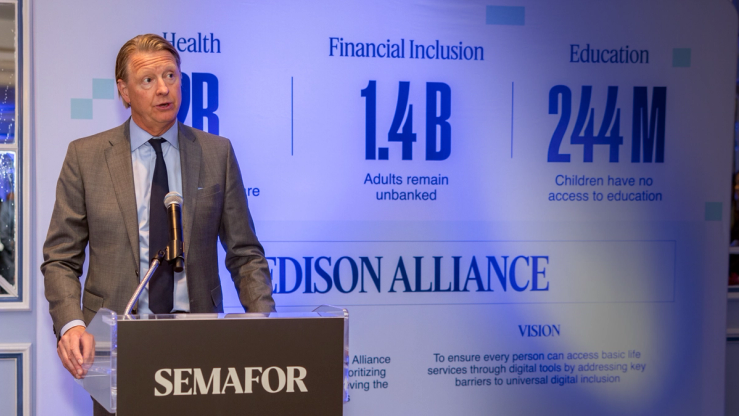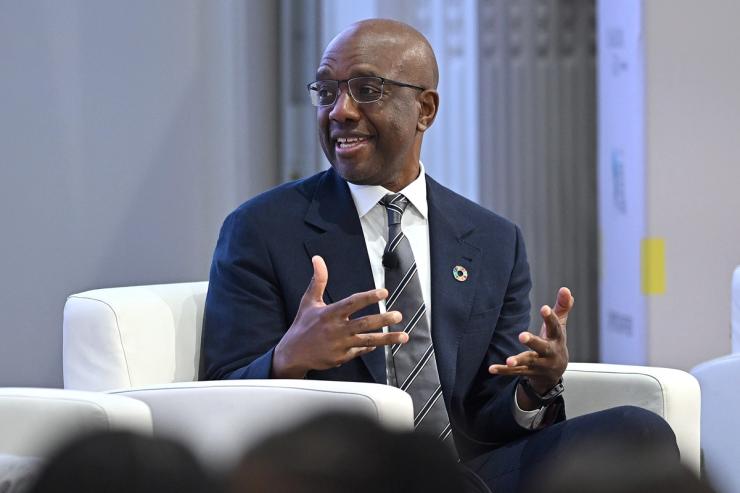The News
The world is running the risk of creating an “AI divide” between countries that could lead to a worse outcome for humanity as artificial intelligence becomes increasingly powerful, a top Google executive told Semafor’s Reed Albergotti in an interview Tuesday.
Speaking at Semafor’s “The Next 3 Billion” event in New York, Google SVP of technology and society James Manyika said the world should work to ensure “the existing digital divide doesn’t also turn into an AI divide in a way that leaves out the Global South.”
He warned that progress on AI may stall or even turn toward harmful outcomes if all nations weren’t engaged in the transformation — which, in turn, requires significant infrastructure investment, and may require more than a billion dollars annually.
“I don’t think it should be acceptable that the Global South is not part of this, both to benefit from [AI] but also to shape how this technology is governed and how it impacts humanity,” Manyika said. He said public-private partnerships to fund basic digital infrastructure, like underwater fiber-optic cables — which Google has invested in — would help build global capacity to participate in the AI era.
Know More
Manyika is the co-author of a new United Nations report, Governing AI for Humanity, published this month that examines the best course forward for how to regulate the technology on a global scale.
The report found that there are few international AI regulation efforts, and that many countries in the Global South have not signed on to any of these.
“In terms of representation, whole parts of the world have been left out of international AI governance conversations,” the report stated, warning that the world is in danger of a “race to the bottom.”
The report called for an AI-focused international policy meeting to take place during the UN’s biannual meetings and a global fund for AI development to fill the gap, with an estimated $350 million to $1 billion needed annually on top of existing financing.
The View From

By Hans Vestberg, Chairman and Chief Executive Officer, Verizon
In 2021, EDISON Alliance members committed to improving one billion lives around the world by delivering digital services in education, healthcare, and finance to people in need. We set the end of 2025 as our goal for accomplishing this, but we reached our milestone more than a year early, with Alliance members executing 320 projects across nearly 130 countries.
No matter where you were born or where you live, everybody should be able to use the digital services essential to fully participating in 21st-century life. Helping all people access these powerful technologies has been my life’s work and it’s essential to Verizon’s mission.



